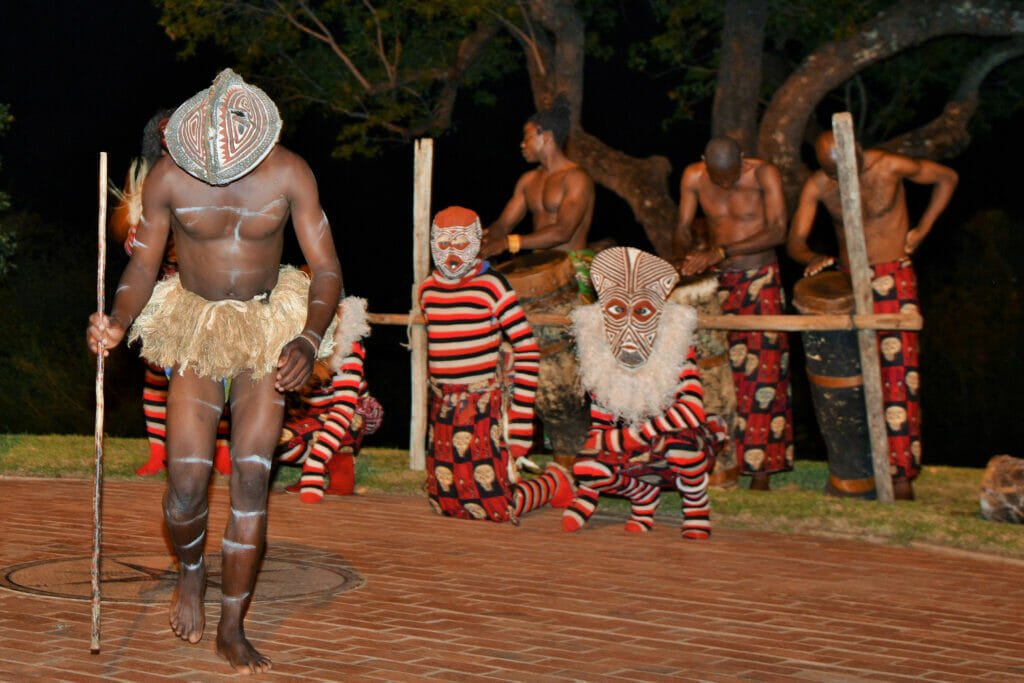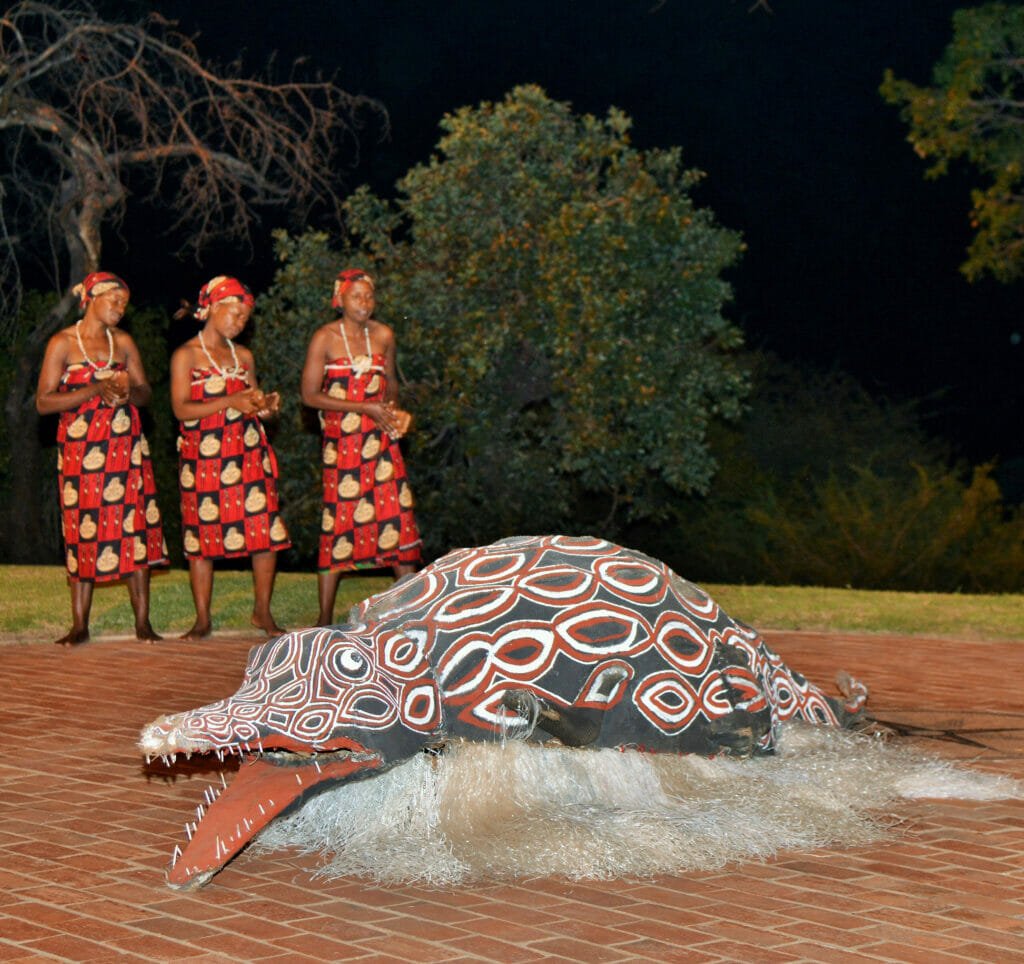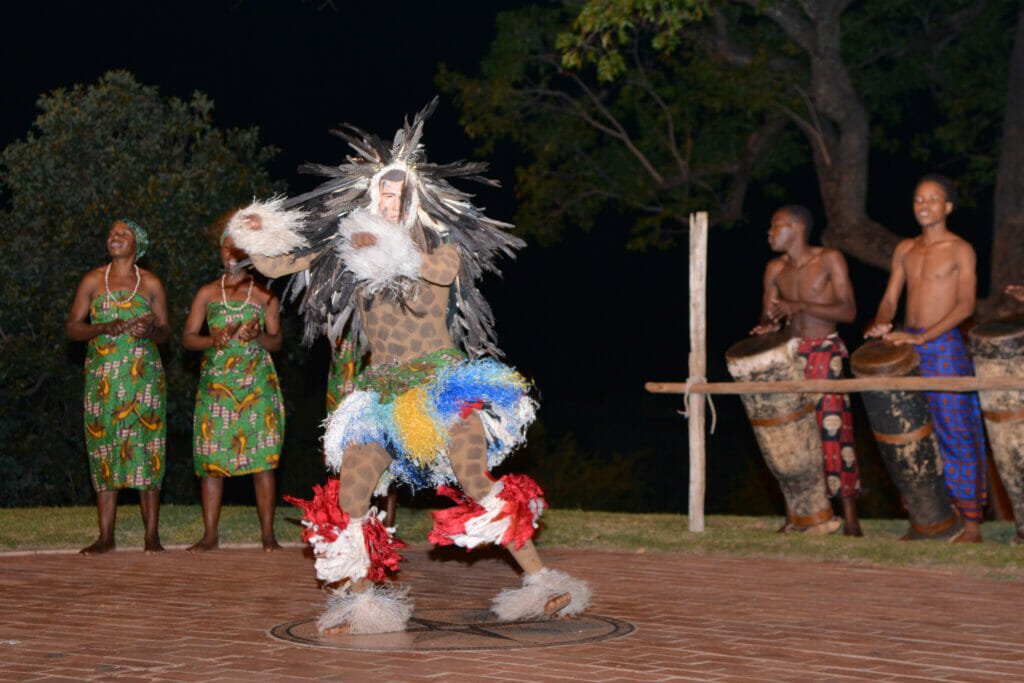Zimbabwe Masks that Symbolize Ancestral Spirits and the Coming Of Age
North-Western parts of Zambia observe rituals during the coming of age transitions from boyhood to manhood. During the transition, the men wear masks that are believed to represent returned spirits to the living world.

By Anele Sasha
The origins of the Makishi dancers originate from the initiation school (Mukanda) where boys attend to transition to manhood. During the initiation process, boys undergo heavy and demanding physical activities to define and refine strength, receive wisdom impartation from elders, spiritual and mental guidance. The goal is that the transitioned men take with them the tools that are needed to navigate manhood in their households and communities. The boys are separated from society and usually attend Mukanda at an isolated bush camp.

The separation is symbolic of the death of a child and the return of an adult. Upon return, the men will be prepared to tackle the responsibilities and expectations that come with manhood. Upon completion, graduation is marked by dance performances by the Makishi where community members attend and witness the returned spirits of the ancestors through mask-wearing routines.
Makishi cultural expression and art is packaged in entertainment for tourists in the resort city of Victoria Falls. The Victoria Falls Hotel, for instance, hosts the Makishi Dancers for dining entertainment. As one enjoys the various scents and flavours of dishes, one also enjoys the awe-striking performances by the dancers. Not only are the dances entertaining, but eye-opening as well. Before each dance, the group hosts gives a brief background of the meanings and origins behind the dance. This narration provides the audience with a deeper appreciation of the ensembles and the meanings behind the musical expression.


